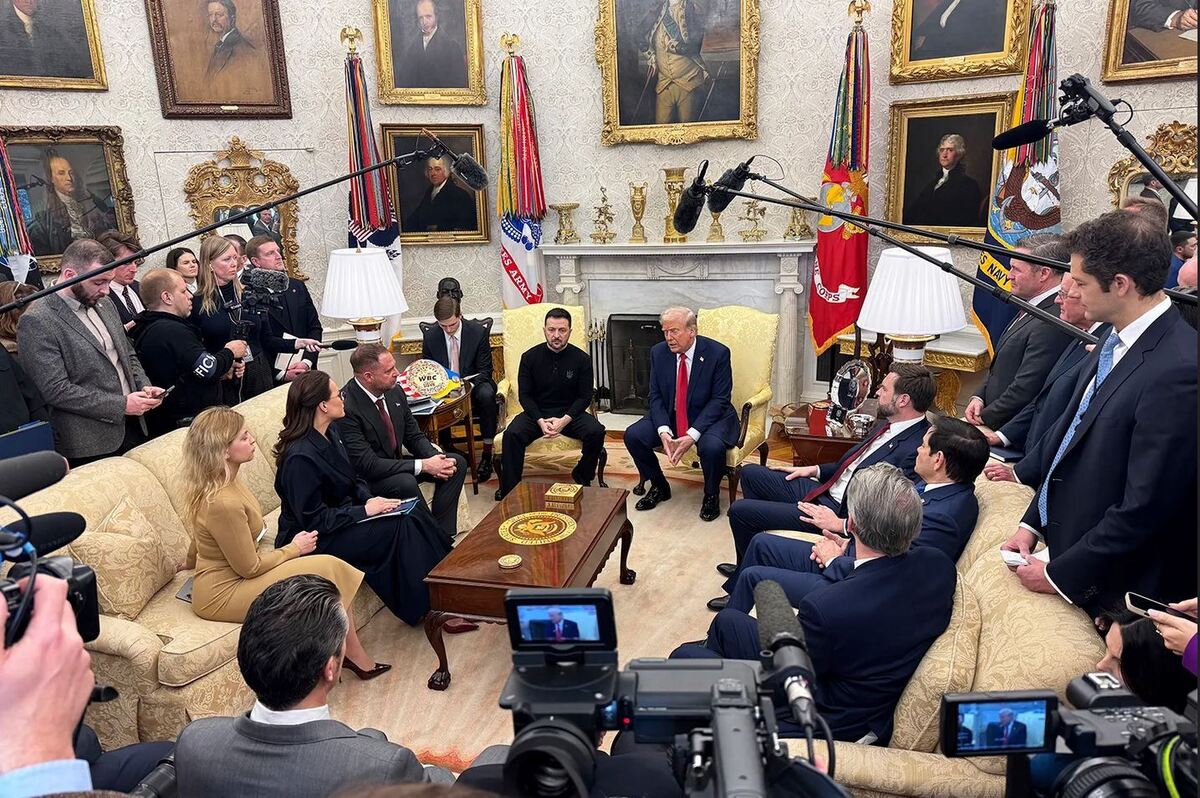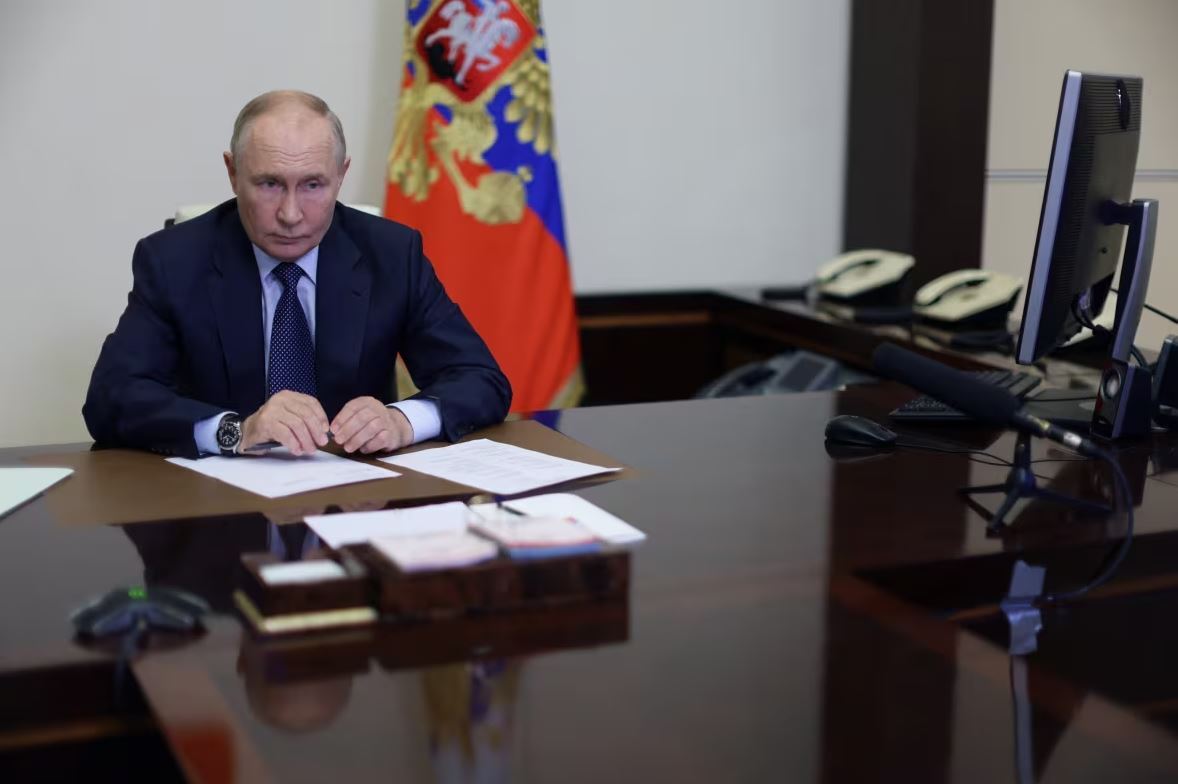Chaos in the White House; Confusion in the World Politics

In a note titled “Chaos in the White House; Dizziness in World Politics,” Iranian Foreign Minister Seyyed Abbas Araghchi discussed the controversial meeting between US President Donald Trump and Ukrainian President Volodymyr Zelensky. He wrote:
Politics is not a simple game; sometimes a formal meeting can reveal the realities hidden in the heart of power more than hundreds of diplomatic statements. The recent White House spat between Donald Trump, J.D. Vance, and Volodymyr Zelensky was no ordinary disagreement. It exposed deep rifts that are growing in the international system. There are many theories about the incident: Was the conflict deliberately planned? Or did it spiral out of control? Was it intended to send domestic and foreign messages, or was it a sign of the breakdown of coordination mechanisms in American foreign policy? What is certain is that the incident painted a picture of a chaotic world in which decisions are no longer hidden.
Crisis at the Heart of Western Power
For years, Washington has presented itself as the center of decision-making in the Western world, but today, this center is no longer unchallenged; the dispute that took place in the heart of the White House is a symbol of strategic doubts, diplomatic uncertainties, and unresolved differences within the Western bloc; Trump's administration came into the world's political arena with the slogan of restoring a "quick peace", a promise that many considered overly optimistic, but has now become an additional pressure on the US President and his Vice President. Trump and Vance are faced with a real challenge: will they be able to fulfill their commitments in a situation where the war involves the interests of many actors?
One of the important messages of this dispute is the change in Ukraine's position in the power equation; in the early days of the war, Zelensky relied more than ever on Western aid, but today, in the heart of the White House, he stands before the US president and gives a sharp response; this is a sign that even countries that have received support from Washington for years no longer accept being looked down upon Ukraine, whether as an independent actor or a pawn on the chessboard of world powers, has now shown that even small allies pay the price for maintaining their dignity and position.
The other question involves Europe’s response; will the continent remain united in its support for Ukraine? Or will this dispute expose deeper divisions on the Western Front? France, Germany, and other European allies have taken a more cautious stance on the Ukraine war from the very beginning. There have been differences in defense and security policies since then. Now, with the verbal conflict between the leaders of the White House and Zelensky, these differences have become more apparent. Europeans, who have been more cautious about developments in Eastern Europe from the beginning, are now faced with a new question: Does Washington still have the power and will to lead a united front in the West?
Moscow: Observer or Designer
This issue has been closely watched in Moscow. Russia has always believed that the Western alliance is fragile and tense; the recent spat in the White House is a confirmation of the Kremlin's narrative that the other side is more unstable than it looks. But beyond this, Moscow is no longer a passive observer; the war in Ukraine and recent developments have provided Russia with an opportunity to plan its game more carefully on various fronts; on the one hand, Russia’s strategic cooperation with China is expanding; on the other hand, the Kremlin is trying to change the power equation at the international level by strengthening its relations with developing countries.

Increasing economic interactions with the BRICS countries, expanding security cooperation with regional partners, and trying to reduce dependence on the Western financial system indicate the approach that Moscow has taken towards global developments.
Meanwhile, the dynamics of Russia-Europe relations have also changed. Some European countries, including Hungary and Slovakia, adopted different positions from that of Moscow and are resisting Brussels’ anti-Russian policies; these differences could be considered as a weakness in the cohesion of the Western Front, and Russia will take advantage of them.
Domestic Politics Overshadows Diplomacy
One of the most important points that this dispute revealed is the intense interference of domestic and foreign policy in the United States; Trump and Vance, while having to deal with international challenges, are engaged in tense domestic politics; elections, party competitions, and domestic pressures have caused many major diplomatic decisions to be influenced by domestic equations rather than strategic interests. Thus, current situation will be challenging not only for the United States, but also for its allies, as the difficulty of predicting US foreign policy increases under such circumstances.
Iran: The Path of Wisdom and Prudence, the Conscious Choice of Independence
In this turbulent atmosphere, the Islamic Republic of Iran carefully and prudently examines developments. Turmoil in international politics is always detrimental to global stability and security. Iran, unlike many actors who are involved in verbal tensions and hasty policies, has always emphasized principles centered on independence, mutual respect, and avoiding unconstructive discourses.
However, Iran's independence is not a coincidence or the result of imposed conditions; rather, it has been a conscious choice, a strategic decision, and an unchangeable principle in the country's foreign policy; Unlike some countries that have sought their security and stability in dependence on foreign powers, Iran has long understood that dependence will only lead to instability and loss of national sovereignty. Real security does not come from the support of extra-regional powers, but from domestic capability, reliance on national capacities, and reliance on the people; for this reason, Iran has chosen a different path; A path in which the country's fate does not depend on the decisions of others and policies are shaped based on national interests, not in the shadow of foreign advice.
Maintaining independence has a price that Iran has always paid for; from the early days of the Islamic Revolution, economic pressures, sanctions, military threats, and proxy wars were all designed to turn Iran into a subordinate actor in the international system, but Iran, contrary to the predictions of its ill-wishers, stood firm and showed that it would not give in to pressure, but would continue its path of development and progress by relying on its domestic capacities.
This conscious choice has become a principle: Iran does not buy its security, but builds it; we do not depend on others to support us, but rather, we defend ourselves by relying on domestic knowledge, power, and capacities. History has shown that countries that have built their security on dependence on others have fallen victim to the changing priorities of their supporting powers at critical moments; examples of this can be seen all over the world; Governments that set their policies in the hope of security guarantees from great powers, but were ultimately left alone at critical junctures. But Iran has learned this historical lesson well; independence is not just a slogan, but an inevitable necessity.
This outlook holds Iran to neither trust foreign promises nor be swayed by the threats of its enemies in its foreign policy. While many international actors have tied their security to fragile and temporary knots, Iran has chosen a different path: a path based on reliance on domestic power, independent progress, and resistance to foreign pressures. Iran does not need to derive its legitimacy from the approval of others, because its legitimacy stems from the will of the nation and independent policies.
Iran chose its path years ago, a path in which neither conditional support from world powers, nor shaky diplomatic promises, nor foreign threats are the basis for decision-making. What is important for Iran is to maintain independence, strengthen domestic power, and move in a direction that stems from national interests. In a world where powers are engaged in daily disputes and volatile competitions, Iran, with its stability in its policies, has shown that dependence on others is not only a threat, but also a strategic mistake.
This is the lesson that history has taught us again and again, and we have not only preserved it, but will also pass it on to future generations.